National Recording Registry
Zur Navigation springen
Zur Suche springen
Inductee gallery
[Bearbeiten]-
Selected exhibition recordings for the phonograph were the earliest recordings added in 2002.
-
The music of ragtime composer Scott Joplin was revived during the 1970s, including his opera Treemonisha (which would later earned him a posthumous Pulitzer Prize).
-
Some of the earliest jazz recordings were made by the Dixieland jazz group known as the Original Dixieland Jazz Band in the late 1910s.
-
"Downhearted Blues" was the first release by blues legend Bessie Smith.
-
Louis Armstrong was one of American music's most important figures. The preserved sessions, and his solos in particular, set a standard musicians still strive to equal in their beauty and innovation.[1]
-
Newsreel footage of the Hindenburg disaster is frequently shown with radio announcer Herbert Morrison's commentary on the zepplin's untimely demise.
-
Marc Blitzstein, a noted composer himself, was also known for translating the tunes of Kurt Weill (notably "Mack the Knife" covered by both Louis Armstrong and Bobby Darin).
-
Orson Welles was well-known for his radio work (including his infamous take on War of the Worlds) before his Oscar-winning directorial debut Citizen Kane.
-
"Strange Fruit", a protest song against the lynching of black people, was originally sung by one of jazz's essential vocalists Billie Holiday.
-
Franklin D. Roosevelt's "Fireside Chats" "redefined the relationship between the president and the American people."[1]
-
Composer Igor Stravinsky was instrumental to the development of 20th century classical music thanks to works like The Firebird and The Rite of Spring, the latter which caused a riot at its' premiere in 1913.
-
Miles Davis, known for his pioneering works on modal jazz including his 1959 magnum opus Kind of Blue.
-
Bob Dylan, pioneer of folk rock after the controversial 1965 performance at Newport, was the first musician to receive the Nobel Prize in Literature.
-
"He's Got the Whole World in His Hands" was one of Marian Anderson's favorite spirituals, and she often performed it at the conclusion of her recitals.[2]
-
Folk music iconoclast Huddie William Ledbetter, otherwise known as Leadbelly
-
Populist politician Huey Long was the inspiration for author Robert Penn Warren's epic novel All the Kings Men.
-
Benny Goodman was one of the few bandleaders to have integrated black and white musicians in their orchestras during an era of segregation.
-
Country artist Bob Willis, known as the "King of Western Swing"
-
Charles Ives, an American composer known for experimental compositions like The Unanswered Question and Three Places in New England
-
The Cole Porter Songbook was the first of Ella Fitgerald's many anthologies involving the Great American Songbook earning the nickname "First Lady of Song".
-
Chuck Berry, widely considered to have "laid the groundwork for not only a rock and roll sound but a rock and roll stance".
-
Photographer O. Winston Link's recordings of the sounds produced by a variety of steam locomotive models capture "the unique and now-lost sounds of the engines which united the United States."[3]
-
The Beatles' album Sgt. Pepper's Lonely Hearts Club Band (1967) is arguably one of the most important albums in popular music.
-
Motown icon Marvin Gaye
-
Brill Building singer/songwriter Carol King, best known for her 1971 Grammy-winning breakthrough album Tapestry.
-
NBC's coverage of aviator Charles Lindbergh was an important achievement with reporters at three locations in Washington D.C.
-
Jimmie Rodgers, once a railroad brakeman, soon became known as "The Father of Country Music".
-
Jack Benny worked with multiple actors on his popular radio show including Mel Blanc, the original voice of Bugs Bunny.
-
Composer Sergey Prokofiev, known for his ever popular composition Peter and the Wolf.
-
Big band trombone player Glenn Miller, known for popular standards like "Chattanooga Choo Choo" and "In the Mood".
-
Transcription disc of playwright Norman Corwin's Peabody Award-winning radio program We Hold These Truths (first aired on December 15, 1941, a week after the attack on Pearl Harbor.)
-
Jazz trumpeter Dizzy Gillespie (alongside saxophonist Charlie Parker) revolutionized the sound of bebop.
-
Outsider musician and composer Harry Partch based his composition U.S. Highball on his experiences as a hobo.
-
Honky tonk pioneer Hank Williams died an early death at age 29 in 1953.
-
Despite controversy surrounding Douglas MacArthur at the time, his farewell speech is noted for its eloquence and effectiveness.[4]
-
Musical satirist Tom Lehrer was known for "Poisoning Pigeons in the Park" while doing "The Masochism Tango".
-
Bossa nova composer Antonio Carlos Jobim
-
Surf rock group The Beach Boys, featuring Brian Wilson who was responsible for the band's 1966 progressive pop album Pet Sounds.
-
Paul Robeson used his diverse talents to pave a successful career as a performer and become active in sociopolitical affairs amidst controversy.
-
American composer Samuel Barber's 1936 composition Adagio for Strings has been played in multiple funerals (e.g. Presidents Franklin D. Roosevelt and John F. Kennedy) and in times of mourning.
-
Count Basie, prominent band leader during the big band era, was known for such swing music standards like "One O'Clock Jump" and "April in Paris".
-
Former boxing champion Max Schmeling handed Joe Louis his first loss.
-
Cool jazz pianist Dave Brubeck experimented with what were then unusual time signatures in his classic 1959 album Time Out.
-
James Baldwin, author of If Beale Street Could Talk and The Fire Next Time, gave a two-part interview about the African-American experience in 1962 with radio journalist Studs Terkel.
-
B. B. King, one of the most well-known modern blues musicians in the last half of the 20th century, and his guitar Lucille.
-
Philip Proctor and Peter Bergman, two out of four members of the cult comedy troupe The Firesign Theatre.
-
Humorist Cal Stewart, a prolific and popular recording artist for the first 20 years of commercial recording.
-
Folk music star Pete Seeger adapted a gospel song, "I Shall Overcome" by changing to "We", and it became a civil rights standard.
-
"Allons à Lafayette" was the best-known recording by Cajun accordionist Joe Falcon.
-
Michael Jackson's Thriller (1983) became one of the best selling albums of all time, surpassing at one point The Eagles Their Greatest Hits (1971-1975) for the top spot (each are inducted).
-
New York City mayor Fiorello La Guardia (who was also the subject of a Tony and Pulitzer Prize-winning musical) read the comics on WNYC radio during the 1945 newspaper delivery strike.
-
The Voyager Golden Record (containing numerous sounds and imagery) was suggested by noted astronomer Carl Sagan.
-
Jazz pianist Mary Lou Williams, known for her own composition Zodiac Suite.
-
Former Prime Minister Winston Churchill's "Sinews of Peace" address originated the term "Iron Curtain" before the start of the Cold War.
-
Ukelele player Cliff Edwards, the original voice of Jiminy Cricket from Walt Disney's 1940 adaptation of Pinocchio, which is also known for the Oscar-winning tune "When You Wish Upon a Star".
-
Mississippi John Hurt, one of the many rediscovered blues musicians during the 1960s folk music revival.
-
Jangle pop group R.E.M., with lead vocalist Michael Stipe, popularized alternative rock during the 1980s-1990s with hits like "It's The End of the World as We Know It (And I Feel Fine)" and "Losing My Religion".
-
Willis Conover, broadcaster with the Voice of America, was known for hosting its' acclaimed jazz program.
-
Yacht rock duo Steely Dan became critical favorites among audiophiles thanks to their 1977 effort Aja and were later sampled by hip hop group De La Soul for their 1989 debut 3 Feet High and Rising (each inducted in 2010).[5][6]
-
Composer/conductor Leonard Bernstein bridged together classical and popular music in both West Side Story (with lyricist Stephen Sondheim) and On the Town.
-
Respected broadcast journalist Edward R. Murrow, while also known for his WWII radio broadcasts, whose televised takedown on Senator Joseph McCarthy was the subject of the 2005 Oscar-nominated George Clooney film Good Night and Good Luck.
-
Psychedelic rock jam band The Grateful Dead are also famous for their dedicated fans known as "Deadheads".
-
Ornette Coleman, innovator of free jazz
-
The Ramones, American punk rock pioneers, were influenced by 1950s-60s rock music (especially the works of producer Phil Spector).
-
The Bee Gees popularized disco music thanks to the soundtrack for the 1977 film Saturday Night Fever.
-
Louis Jordan, innovator of jump blues
-
Popular swamp rock group Credence Clearwater Revival
-
Christian music pioneer Larry Norman
-
Aaron Copland redefined American classical music with memorable pieces like Appalachian Spring and Fanfare for the Common Man.
-
Johnny Mercer, one of the many songwriters of The Great American Songbook
-
Acid rock group The Doors, with controversial lead singer Jim Morrison who was also known as "The Lizard King", were featured on the soundtrack to New Hollywood auteur Francis Ford Coppola's 1979 Vietnam War epic Apocalypse Now.
-
Lauryn Hill went on a Grammy-winning R&B solo career after leaving the popular rap group The Fugees.
-
Tin Pan Alley songwriters Irving Berlin, Richard Rodgers and Oscar Hammerstein II also wrote successful Broadway musicals (the latter two with hits such as The King and I and The Sound of Music).
-
Nickmaned "The Stilt", Wilt Chamberlain was voted as one of the greatest players ever to played the game of basketball.
-
Avant-garde jazz saxophonist John Coltrane, lauded for his groundbreaking albums Giant Steps and A Love Supreme (each a Registry inductee).
-
Comedian George Carlin was known for his controversial aim at censorship "Dirty Words You Couldn't Say on Television".
-
Gloria Gaynor won the only Grammy Award ever presented to disco music with her smash single "I Will Survive".[7]
-
David Bowie, who popularized glam rock with his alter ego Ziggy Stardust, was also the subject of the Grammy-winning documentary Moonage Daydream.
-
African-American stand up comedian Richard Pryor, known for confronting American racism on stage and in his multiple Grammy-winning albums.
-
Talking Heads, with lead singer David Byrne, was one of New Wave's innovative bands thanks to their blend of funk, punk and Afrobeat. (Their 1984 concert film Stop Making Sense, directed by future Oscar winner Jonathan Demme, is on the National Film Registry)
-
The Ink Spots, a popular African-American vocal jazz group during the 1930s-1940s
-
Minimalist music composer Steve Reich, known for his 1988 piece on the effects of the Holocaust entitled Different Trains, used tape loops in his various compositions.
-
Soft rock staple Fleetwood Mac, featuring singer-songwriters Stevie Nicks, Christine McVie and Lindsay Buckingham
-
Latin pop sensation Gloria Estefan brought a Cuban flavor to the top of the charts during the 1980s with her band Miami Sound Machine.
-
Yo-Yo Ma, an acclaimed Grammy Award-winning celloist, performed works by composers Tan Dun, Mark O'Connor and Astor Piazzolla.
-
Cab Calloway, popular swing-era bandleader who also appeared on the animated films of The Fleischer Brothers starring the cartoon character Betty Boop.
-
Legendary Chicano rock pioneer Ritchie Valens, known for the 1958 smash hit "La Bamba", met his untimely death in an airplane crash a year after alongside rockabilly icons Buddy Holly and Jiles Perry "J.P." Richardson Jr., better known as The Big Bopper before being immortalized by singer-songwriter Don McLean's 1971 classic "American Pie".
-
Radio comedian Stan Freberg worked with fellow voice actors June Foray, Paul Frees and Daws Butler who were each known for contributing their talents during Hollywood's golden age of animation (e.g. Tom & Jerry) as well as providing voices for beloved animated characters created during television's first golden age (e.g. Rocky and Bulwinkle).
-
British composer Benjamin Britten, known for the opera Peter Grimes and his ever-popular Young Person's Guide to the Orchestra (the latter based on themes by Henry Purcell).
-
Soul priestess Nina Simone, whose own composition Mississippi Goddam is included on the Registry, was also the subject of a 2015 Oscar-nominated documentary film.
-
Paul Whiteman, nicknamed "King of Jazz", made the earliest recording of composer George Gershwin's Rhapsody in Blue.
-
Comedian Allen Sherman won a Grammy for the novelty song "Hello Muddah, Hello Fuddah" to the tune of Ponchielli's Dance of the Hours.
-
Popular country star Glen Campbell was part of a group of session musicians called The Wrecking Crew before he became famous.
-
Popular children's television host Fred Rogers was also spoofed by the likes of comedians Johnny Carson and Eddie Murphy.
-
R&B singer Tina Turner finally went solo later in her career after splitting with ex-husband Ike Turner and became a legend in her own right.
-
Country singer Eddie Arnold, innovator of the Nashville sound
-
African American opera singer Leontyne Price whose resume ranged from Francis Poulenc to Giuseppe Verdi.
-
Baseball legend Roger Maris, who broke Babe Ruth's home run record in 1961, was also the basis for the 2001 TV movie 61*.
-
Soul group Labelle with lead singer Patti Labelle, known for the hit 1975 tune "Lady Marmalade", a song which would later be covered on the soundtrack to the 2001 film musical Moulin Rouge!.
-
Jazz fusion guitarist Pat Methany
-
Oscar-winning songwriter Paul Williams, known for his 1979 composition "The Rainbow Connection", sung by puppeter Jim Henson's beloved Muppet creation Kermit the Frog.
-
James P. Johnson, strut piano pioneer whose 1923 composition "Charleston" started a dance craze of the same name.
-
Easy listening favorite Andy Williams, well-known for his cover of Henry Mancini's Academy Award-winning tune "Moon River".
-
Songwriting duo The Sherman Brothers (Robert and Richard) wrote memorable songs for classic Disney films including 1964's Mary Poppins (for which they won multiple Oscars) and several animated Winnie the Pooh shorts alongside the popular Disneyland attraction "It's a Small World (After All)".
-
Robin Williams, Oscar-winning actor and master of improvisational comedy, gave an interview about his personal struggles on a 2010 episode of comedian Marc Maron's podcast WTF before his untimely death four years later.
-
John Denver's hit tune "Take Me Home, Country Roads" soon became an official state song for West Virginia.
-
Influential post-bop trumpeter Wynton Marsalis was the first jazz musician to win the Pulitzer Prize for Music.
-
Military bandleader James Reese Europe was the leading figure on the African American music scene of New York City in the 1910s and one of the first African-American musicians to make it into the mainstream.[8]
-
Finnish-American polka accordionist Viola Turpeinen[9] was possibly the first woman in the world to record accordion solos.[10]
-
Film star and singing cowboy artist Gene Autry
-
The punk rock group Blondie, with lead singer Deborah Harry, were known for numerous hits like the disco-influenced "Heart of Glass" and "Rapture", one of the earliest known examples of the then-emerging genre known as hip-hop.
-
New wave power pop synth rock group The Cars, a staple during the early years of the popular music channel MTV.
References
[Bearbeiten]- ↑ a b The National Recording Registry 2002. The Library of Congress (December 6, 2006). Retrieved on February 9, 2007.
- ↑ The National Recording Registry 2003. The Library of Congress (October 25, 2006). Retrieved on February 9, 2007.
- ↑ O. Winston Link Productions
- ↑ The National Recording Registry 2004. The Library of Congress (October 25, 2006). Retrieved on February 9, 2007.
- ↑ De La Soul’s music catalog makes streaming debut - NBC Palm Springs
- ↑ Newt Gingrich, Captain Beefheart, humpback whales join National Recording Registry|Ars Technica
- ↑ "I Will Survive" wins the first—and last—Grammy ever awarded for Best Disco Recording - HISTORY
- ↑ Kelly, Kate (2015-02-27). James Reese Europe: Bandleader Who Popularized Jazz and Ragtime (in en-US). America Comes Alive. Retrieved on 2022-12-06.
- ↑ FOLK'S TUNES: THE UPPER PENINSULA'S MUSICAL TRADITIONS - The Emberlight Festival
- ↑ Description: American Hanuri Prinsessa Volume 1 1928-1929 CD by Viola Turpeinen. musicforaccordion.com. Artie Music. Retrieved on 12 April 2020.




![Louis Armstrong was one of American music's most important figures. The preserved sessions, and his solos in particular, set a standard musicians still strive to equal in their beauty and innovation.[1]](https://upload.wikimedia.org/wikipedia/commons/thumb/0/0e/Louis_Armstrong_restored.jpg/120px-Louis_Armstrong_restored.jpg)




![Franklin D. Roosevelt's "Fireside Chats" "redefined the relationship between the president and the American people."[1]](https://upload.wikimedia.org/wikipedia/commons/thumb/7/7b/FDRfiresidechat2.jpg/120px-FDRfiresidechat2.jpg)



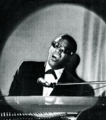

!["He's Got the Whole World in His Hands" was one of Marian Anderson's favorite spirituals, and she often performed it at the conclusion of her recitals.[2]](https://upload.wikimedia.org/wikipedia/commons/thumb/a/a8/Marian_Anderson.jpg/94px-Marian_Anderson.jpg)







![Photographer O. Winston Link's recordings of the sounds produced by a variety of steam locomotive models capture "the unique and now-lost sounds of the engines which united the United States."[3]](https://upload.wikimedia.org/wikipedia/commons/thumb/e/e6/NW_Class_A.jpg/120px-NW_Class_A.jpg)
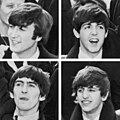



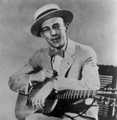







![Despite controversy surrounding Douglas MacArthur at the time, his farewell speech is noted for its eloquence and effectiveness.[4]](https://upload.wikimedia.org/wikipedia/commons/thumb/5/52/Douglas_MacArthur_speaking_at_Soldier_Field_HD-SN-99-03036.JPEG/120px-Douglas_MacArthur_speaking_at_Soldier_Field_HD-SN-99-03036.JPEG)


















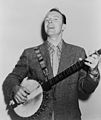





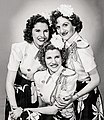








![Yacht rock duo Steely Dan became critical favorites among audiophiles thanks to their 1977 effort Aja and were later sampled by hip hop group De La Soul for their 1989 debut 3 Feet High and Rising (each inducted in 2010).[5][6]](https://upload.wikimedia.org/wikipedia/commons/thumb/d/db/Steely_Dan_-_Donald_Fagen_-_Luzern_2007.jpg/120px-Steely_Dan_-_Donald_Fagen_-_Luzern_2007.jpg)























![Gloria Gaynor won the only Grammy Award ever presented to disco music with her smash single "I Will Survive".[7]](https://upload.wikimedia.org/wikipedia/commons/thumb/c/cb/Gloria_Gaynor_%281976%29.jpg/90px-Gloria_Gaynor_%281976%29.jpg)



































![Military bandleader James Reese Europe was the leading figure on the African American music scene of New York City in the 1910s and one of the first African-American musicians to make it into the mainstream.[8]](https://upload.wikimedia.org/wikipedia/commons/thumb/9/90/James_Reese_Europe.jpg/93px-James_Reese_Europe.jpg)
![Finnish-American polka accordionist Viola Turpeinen[9] was possibly the first woman in the world to record accordion solos.[10]](https://upload.wikimedia.org/wikipedia/commons/thumb/9/96/Violaturpeinen.jpg/85px-Violaturpeinen.jpg)



